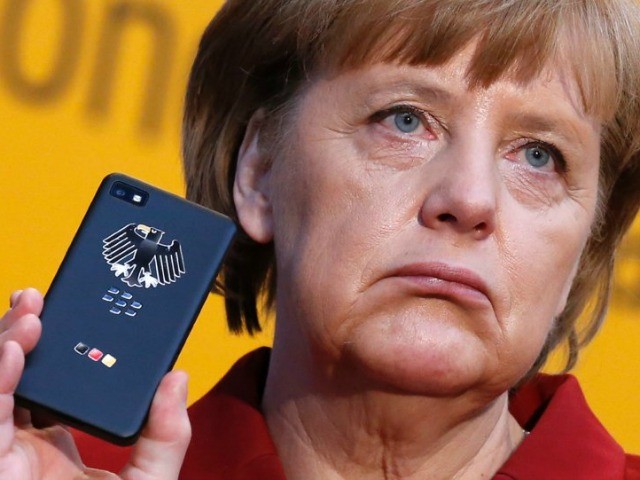Given the various strands of British euroscepticism which have been developing across the political spectrum, also within UKIP, it is time to address certain popular myths which have been doing rounds.
Firstly, the EU in its current post-crisis shape is not some unintelligent blob of supranational bureaucracy which has evolved unchecked, but rather a continent effectively run by Germany, essentially “Germany+”.
This status is a result of UK’s growing euroscepticism and its lesser involvement on the continent, France’s disastrous economy which has ensured it no longer is Germany’s equal by a long way, and Italy’s, Spain’s and the rest of the Southern Europe’s slippage into the “developing world” category by way of becoming practically insolvent, as well as Southern European dependence on German credit due to numerous bailouts.
Secondly, Russia is not a natural ally for all eurosceptics. Russia and Germany live in a symbiosis due to Germany being dependent on cheap Russian gas, i.e. paying preferential rates compared to its neighbours, whilst Russia seeing Germany as its major client.
Germany running the EU effectively paralyses it as far as any anti-Russian action is concerned, as has been proven even recently with Angela Merkel blocking any serious sanctions against Russia or NATO’s bases in Eastern Europe. The cosy relationship between Russian Gazprom and Germany’s movers and shakers couldn’t have been more obvious when Gerhard Schroeder ceased being German Chancellor in 2005 just to take up a role in Gazprom’s Nord Stream AG.
Nord Stream in turn is a gas pipeline laid on the Baltic seabed which links Germany directly to Russian gas, bypassing Poland and a host of other countries – clearly not the best example of EU energy solidarity. Given Germany’s and wider EU’s dependence on Russian gas, the two are interlinked by a major business relationship and it definitely is not in Putin’s interest to destroy the EU, as much as it is not in EU’s interest to rock Putin’s boat. Furthermore, many libertarians are eurosceptic as a reaction to EU becoming increasingly authoritarian. With that in mind, the arch-authoritarian Putin should be the last person to be considered a libertarian hero.
Thirdly, some believe that USA would only honour the “special relationship” whilst the UK remains an EU member, which is completely wrong and can be easily proved as such by elimination. US spying on top German politicians has been much publicised over the last year, but the more recent development is that Germany has been reciprocating. Clearly there is no trust between the two.
France is known for defending its interests vs USA by way of its EU veto, for example by blocking the idea of a US-EU free trade talks in 2013 on China trade or more recently as retaliation to USA fining French bank BNP Paribas. Indeed France is way too temperamental to be a reliable partner for USA on the continent. Out of the major economies and global players that leaves the UK; and we have already had a very good understanding with the USA for a century or longer. USA simply cannot afford to let us go, even if we were to exit the EU and go about our continental business via the EEA structures, as they simply have no one else in our weight class to talk to in Europe. USA is therefore eurosceptic-neutral.
In terms of Eastern European euroscepticism, rejection of the EU does not mean embracing Russia, despite what Hungary’s Viktor Orban may lead some to believe. For my part, I have been a proponent of Respublica Nova as a viable alternative, whereby Estonia, Latvia, Lithuania, Poland and Ukraine work closer together on energy and defence, whilst remaining in NATO (bar Ukraine) and straddling EEA and Russian free trade areas (the latter by way of Ukraine’s treaty). In future Belarus could possibly be tempted to join.
Eastern European eurosceptics certainly do not long for a recreation of the USSR by falling back into the Russian sphere of influence, but rather want to normalise their countries’ EU relationship to what essentially is offered by the EEA, whilst building up trade links to the East (Russia included). Indeed, plenty of Eastern European eurosceptics are simultaneously Atlanticist, believing in strong relationship with both UK and USA. A party which sees Churchill and Thatcher as its heroes should find combining Atlanticism with euroscepticism easy and as such, UKIP seems a good place for a Friends of Poland group.
Hence, the “our enemies’ enemies are our friends” principle is not applicable to euroscepticism, which is essentially a struggle for independence of many differing nations with differing histories and priorities. At the same time the evolving nature and structure of the EU means that geopolitics is becoming ever more complex, especially as the European Union is fast becoming a one-country show, whilst covering an unprecedented territory, even when compared to the Roman Empire.
Once you realise that the EU = Germany+ and Germany sits deep in Russia’s pocket, then it becomes blatantly obvious that Atlanticism is the option of choice for a British eurosceptic.

COMMENTS
Please let us know if you're having issues with commenting.